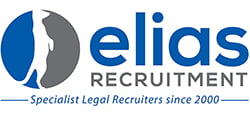What makes the difference between a fresh graduate and a veteran lawyer often comes down to details – writing an email so a client clearly understands their legal options, or contributing effectively to a business meeting to win new work or consolidate an existing relationship. On 18 August 2017, The College of Law hosted a one-day event, the New Lawyers Summit, featuring advice from senior lawyers, recruiters, digital networkers and barristers to help law graduates acquire the skills they need to excel professionally. Insights spoke to recruiter Jason Elias, who was part of the New Lawyers Summit, on his advice for new lawyers hoping to impress in their first graduate role.
“As recruiters, we hear, see and are sometimes purely surprised by some of the easily avoided but common mistakes we see in the recruitment process,” said Elias.
Including a photo ranks high on his list of job-hunting faux pas. “There is no reason to put a photo in a legal CV, even if you look like Amal Clooney – or George Clooney. It’s irrelevant. Unlike actors or models, looks are irrelevant when it comes to being a good lawyer.”
“Be brief in your CV,” advised Elias. “Anything over four pages is overkill. Make sure you focus on the most recent and relevant roles. Do not include any matters that could be discriminatory, such as references to your age, marital status, race or religion.
“Don’t try to be fancy with your CV, with illustrations or boxes or any other kind of novelty. Just be professional. Remember, the CV is there to get you the interview. Once you’re in the interview, let your personality shine a bit more.”
For law students looking to impress recruiters and law firm HR, Elias advised finding some form of legal work while studying law.
“Get a job, even if it’s in the mailroom,” said Elias. “There are so many stories of managing partners who started in the mailroom. Get an associateship with a judge, find work as a paralegal – anything relevant to your chosen career.”
Elias also noted that marks remain important, so a concerted effort to do well – and consistently – in the study of law will distinguish applicants at the graduate recruitment stage.
Applying the same sense of industry and commitment to preparing for an interview as one might for a distinction or high distinction is essential – and one of the most overlooked areas for graduate applicants.
“Preparation is really important. I’ve never understood why it’s overlooked. When you’re going for a job, your academic transcript might have three pages of marks, which a recruiter or an HR manager might glance over for twenty seconds. For each of those marks, you might have spent dozens of hours to make sure it was distinction, not a credit. Yet I still hear HR people telling me that a candidate didn’t know their firm specialised in a certain area.
“To prepare well for an interview, read the firm’s website,” urged Elias. “Read anything that is written by the firm and its lawyers. Know the legal press. Know the LinkedIn profiles of all the partners. It shows you know the firm and want the job.”
In recent years, automation and outsourcing have featured frequently in legal news, sparking some concern that it may disrupt entry level and paralegal work. In Elias’s view, these concerns are largely unfounded.
“I’m a bit skeptical about how much automation will really effect the legal profession. There’s no substitute for quality control, and only real people can ensure quality work. Automation may make our work more efficient but it won’t replace all work. New lawyers should focus on doing what machines can never do – understanding the commercial context of a legal issue, and the subtleties of human nature. Much of the time advice is not just about technical black letter law but the commercial context and underlying human motivations around a deal.”
Above all, Elias advises perseverance.
“Getting turned down from a job interview is not the best feeling in the world,” Elias said. “Some roles, especially in-house, can have up to 100 candidates. Some employers will share tips on how you can improve. Take these tips into consideration and learn from the job application experience. Remember, recruiters deal with thousands of lawyers each year. Nobody is intentionally out of work for long.”
This article was first published on 12 July 2017 in the College of Law.

1 thought on “What I wish I’d known as a new lawyer | Advice from a recruiter”
I agree to your advises. As a new lawyer, you must be brief with your CV of up to 3 pages maximum only. Having some associate jobs while starting the career is the best option as well. It is like a ladder where you have to step on the bottom first in order to get to the top. Thank you.